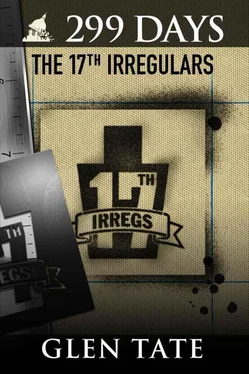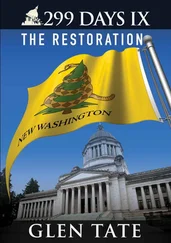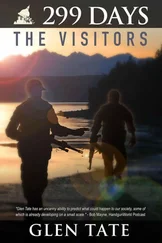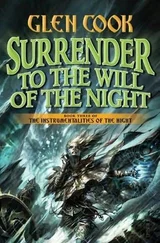As they were leaving, a Navy petty officer with a clipboard and “Free Wash. State Guard” on the name tag of his fatigues, said to them, “The 17th, I presume?”
Grant nodded. It took him a second to realize that he was in charge. He would answer questions like that. This was quite a change from a half hour ago when the question was whether he was “Mr.” Matson or “Lt.” Matson.
“Your craft is waiting over at slip twenty-two, down this way,” the petty officer said, and pointed to a corner of the marina. “Good night, gentlemen and good luck.” The petty officer looked at Jim Q. and said, “I’d say ‘good luck’ in your language, but I don’t even know what language it is. Better that we don’t, but good luck.” The petty officer tipped his head instead of saluting. Battlefield rules on saluting were in place. Boston Harbor, as beautiful and joyous as that place was that night, was technically a battlefield.
“Thank you,” Jim Q. said. He was told not to use words from his language unless absolutely necessary. Saying “Basima,” his word for “thank you,” with the petty officer would be polite, but if the petty officer were a spy, the Loyalists would know what language the code talkers were using.
Jim Q. wanted to be polite, so he said to the petty officer, “I would say ‘thank you’ in my language, but…”
The petty officer put his hand up and said, “Understood. OPSEC, sir,” which was the military acronym for “operational security.” That term basically meant, “Don’t be a dumbass and give out little details that allow people to find you and kill you.”
Grant and the rest of the 17th walked down the marina toward the boat for the ride home. They weren’t talking. They moved as quietly as possible at all times. It wasn’t natural for Grant to walk around with friends and not talk. He’d been talking with friends instead of walking silently for over forty years during peace time. But now, even though Boston Harbor was as secure as possible, it just seemed stupid and unprofessional to blab. It was like hunting. Everyone’s quiet until they’re in camp.
Grant was starting to like the silence that came with his new military duties. All day long at his Grange day job people yammered to him or he had to talk to people. Sometimes, at the end of the day he couldn’t stand it if one more person talked to him; he was overloaded. The only quiet he ever got was when he was in the woods or on the water with his unit.
“His unit”? Did he just think that? It was still sinking into Grant that he was the commanding officer of the 17th Irregulars of the Free Washington State Guard. He had foreseen all the big things that had eventually happened—the Collapse, surviving out at the cabin, the Team—but he had not foreseen this lieutenant thing. He looked up at the stars and said to himself, “Awaiting further instructions.”
There was Paul ready to take them back. He was happy to see them.
Paul realized that they had one additional passenger. He pointed at Jim Q. and asked Ted, “Is he cool?”
“Yep. Jim Q., meet Paul,” Ted said. “Paul is our boat guy. He lives out at Pierce Point. Paul, Jim Q. is our radio guy.” Ted knew not to tell a single person who didn’t need to know that they had a code talker.
Paul extended his hand. “Radio guy, huh? Cool. Nice to meet you Jim Q.”
Paul pointed to a duffle bag in the boat and said to Jim Q., “A Navy guy came by and said this belongs to one of you. Is it yours?”
Jim Q. looked at the duffle bag and asked for a flashlight. Ted, Sap, Grant, and Paul each had one. Along with carrying a pistol everywhere, another new habit Grant acquired was having a flashlight, notepad and pen, and a folding knife on him at all times.
“Mine is green light,” Paul said, referring to his flashlight. “Saves your night vision.” Paul handed it to Jim Q., who looked at the duffle bag with the green light and said, “Yep, this is mine. Thanks.”
Grant looked at his watch. It was 2:15 a.m. “Time to boogie,” he said to Paul. Grant’s caffeine pill was wearing off a little. He was emotionally exhausted. So much had happened that night.
Paul got on the radio, said something, and got an answer back. “We’re on hold for a little while. Each boat leaves with some time interval. No bunching us up. Easier for the bad guys to take more of us out if we’re bunched up.”
That reminded Grant that this war wasn’t going to be a cakewalk. He grabbed a pair of binoculars and started to scan around. It couldn’t hurt to have as many eyes as possible looking for threats.
Through the binos, Grant could see a boat that had made it out of the harbor. It turned its running lights off and kept going, veering right, which was the route up the Puget Sound toward Seattle. Paul’s boat would be going left.
After a while of straining to look through the binos, Grant could tell his eyes were becoming unfocused. He decided he needed to work on his command presence. Not to be bossy, just to be a lieutenant.
He handed the binos to Sap and said, “Sergeant, my old eyes are too tired to keep looking through these. Why don’t you take over?”
“Yes, sir,” Sap said.
Ted, realizing that Grant was working on his command presence, turned to Paul and said, “Grant here is now Lt. Matson.”
“What?” Paul asked. “Lieutenant?”
“Yep,” Ted said to Paul. “He is now your commanding officer. He is the CO of the 17th Irregulars. That’s your unit now.”
“What’s the 17th Irregulars?” Paul asked after a brief pause. Ted told him about the unit and a little bit of what had happened in Hammond’s office and then the meeting hall.
“Cool,” Paul said. He stood up straight and his chest puffed out a bit. He was proud to be part of this. He kept thinking how far he’d come. Now he was a soldier. Or a sailor. Or whatever he was.
Although Grant was tired, and tired of talking in particular, he couldn’t resist the opportunity. He said to Paul, “The boat guys were very important in the Revolutionary War. Did I ever tell you about how George Washington got a little navy together and used them to do some pretty amazing things?” That resulted in a ten-minute talk. Paul was very interested. He was realizing how important his job was.
A minute after Grant was done talking about George Washington’s navy, the radio crackled. Paul answered with a call sign Grant didn’t recognize. Paul said, “We’re cleared to go. We’ll be going fast at first, then we’ll slow down and go in circles for a while. We’ll come close to another boat, which also won’t have its lights on, then we’ll cruise out at a weird angle, and then straighten out. It’s part of a thing to make it hard for an observer on the shore to keep track of the boats. Like three-card Monte, where they move their hands around to keep you from seeing which one is the money card. Anyone on shore watching us will think we’re just smugglers doing a drop or something. That’s the idea.”
Grant was realizing that all this zooming around the water, coming close to other boats with their lights off, and then taking off at weird angles, all in the dark, was pretty dangerous. Given how weak the Limas would probably be in straight-on combat, Grant bet that many of the military deaths in this war would be from accidents. Most people thought the only way to die in the military was to dramatically take a bullet to the chest while shooting at the enemy. Not true. Those kinds of deaths were actually pretty rare. Accidents and friendly fire were much more common, and just as deadly.
“Untie me,” Paul said. Grant and Sap jumped off the boat, untied it, and jumped back on.
One more crackle of the radio and Paul moved the boat slowly out of the slip in the marina. When they had cleared the end of the marina, Paul said, “Find a seat and hang on.” He started to take off at a steady and moderate rate of speed. Pretty soon, after his wake was lessened, but not completely eliminated, he punched it. Everyone was pushed back in their seats. This boat had some horsepower. Whoever they got it from had a hell of a boat.
Читать дальше











